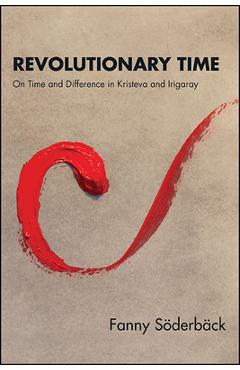Revolutionary Time - Fanny Soderback

Detalii Revolutionary Time - Fanny Soderback
libris.ro
335.29 Lei
372.54 Lei
Philosophy
Fanny Soderback
Revolutionary Time - Fanny Soderback - Disponibil la libris.ro
Pe YEO găsești Revolutionary Time - Fanny Soderback de la Fanny Soderback, în categoria Philosophy.
Indiferent de nevoile tale, Revolutionary Time - Fanny Soderback din categoria Philosophy îți poate aduce un echilibru perfect între calitate și preț, cu avantaje practice și moderne.
Preț: 335.29 Lei
Caracteristicile produsului Revolutionary Time - Fanny Soderback
- Brand: Fanny Soderback
- Categoria: Philosophy
- Magazin: libris.ro
- Ultima actualizare: 02-11-2024 01:25:46
Comandă Revolutionary Time - Fanny Soderback Online, Simplu și Rapid
Prin intermediul platformei YEO, poți comanda Revolutionary Time - Fanny Soderback de la libris.ro rapid și în siguranță. Bucură-te de o experiență de cumpărături online optimizată și descoperă cele mai bune oferte actualizate constant.
Descriere magazin:
This book is the first to examine the relationship between time and sexual difference in the work of Julia Kristeva and Luce Irigaray. Because of their association with reproduction, embodiment, and the survival of the species, women have been confined to the cyclical time of nature--a temporal model that is said to merely repeat itself. Men, on the other hand, have been seen as bearers of linear time and as capable of change and progress. Fanny S derb ck argues that both these temporal models make change impossible because they either repeat or repress the past. The model of time developed here--revolutionary time--aims at returning to and revitalizing the past so as to make possible a dynamic-embodied present and a future pregnant with change. S derb ck stages an unprecedented conversation between Kristeva and Irigaray on issues of both time and difference, and engages thinkers such as Simone de Beauvoir, Jacques Derrida, Sigmund Freud, Judith Butler, Hannah Arendt, and Plato along the way. This book is the first to examine the relationship between time and sexual difference in the work of Julia Kristeva and Luce Irigaray. Because of their association with reproduction, embodiment, and the survival of the species, women have been confined to the cyclical time of nature-a temporal model that is said to merely repeat itself. Men, on the other hand, have been seen as bearers of linear time and as capable of change and progress. Fanny S derb ck argues that both these temporal models make change impossible because they either repeat or repress the past. The model of time developed here-revolutionary time-aims at returning to and revitalizing the past so as to make possible a dynamic-embodied present and a future pregnant with change. S derb ck stages an unprecedented conversation between Kristeva and Irigaray on issues of both time and difference, and engages thinkers such as Simone de Beauvoir, Jacques Derrida, Sigmund Freud, Judith Butler, Hannah Arendt, and Plato along the way. This book is the first to examine the relationship between time and sexual difference in the work of Julia Kristeva and Luce Irigaray. Because of their association with reproduction, embodiment, and the survival of the species, women have been confined to the cyclical time of nature-a temporal model that is said to merely repeat itself. Men, on the other hand, have been seen as bearers of linear time and as capable of change and progress. Fanny S derb ck argues that both t

Produse asemănătoare

The Time-Saver\'s Workout: A Revolutionary New Fitness Plan That Dispels Myths and Optimizes Results - John Little
![]() libris.ro
libris.ro
Actualizat in 28/10/2025
94.81 Lei

MISSHA, Time Revolution The First Treatment Essence RX, primul tratament esență de revoluționare a timpului , 150 ml
![]() gliskin.ro
gliskin.ro
Actualizat in 28/10/2025
66.82 Lei

MISSHA, Time Revolution Artemisia Pack Foam Cleanser, cleanser tip spumă artemisia pack de revoluționare a timpului, 150 ml
![]() gliskin.ro
gliskin.ro
Actualizat in 28/10/2025
66.82 Lei

MISSHA, Time Revolution The First Essence Lotion 5X, loțiune esență de revoluționare a timpului , 130 ml
![]() gliskin.ro
gliskin.ro
Actualizat in 28/10/2025
66.82 Lei

MISSHA, Time Revolution Immortal Youth Cream 2X, cremă de ten tinerețe eternă de revoluționare a timpului, 50 ml
![]() gliskin.ro
gliskin.ro
Actualizat in 28/10/2025
66.82 Lei

MISSHA, Time Revolution Immortal Youth Essence 2X, esență de tinerețe eternă de revoluționare a timpului, 50 ml
![]() gliskin.ro
gliskin.ro
Actualizat in 28/10/2025
66.82 Lei